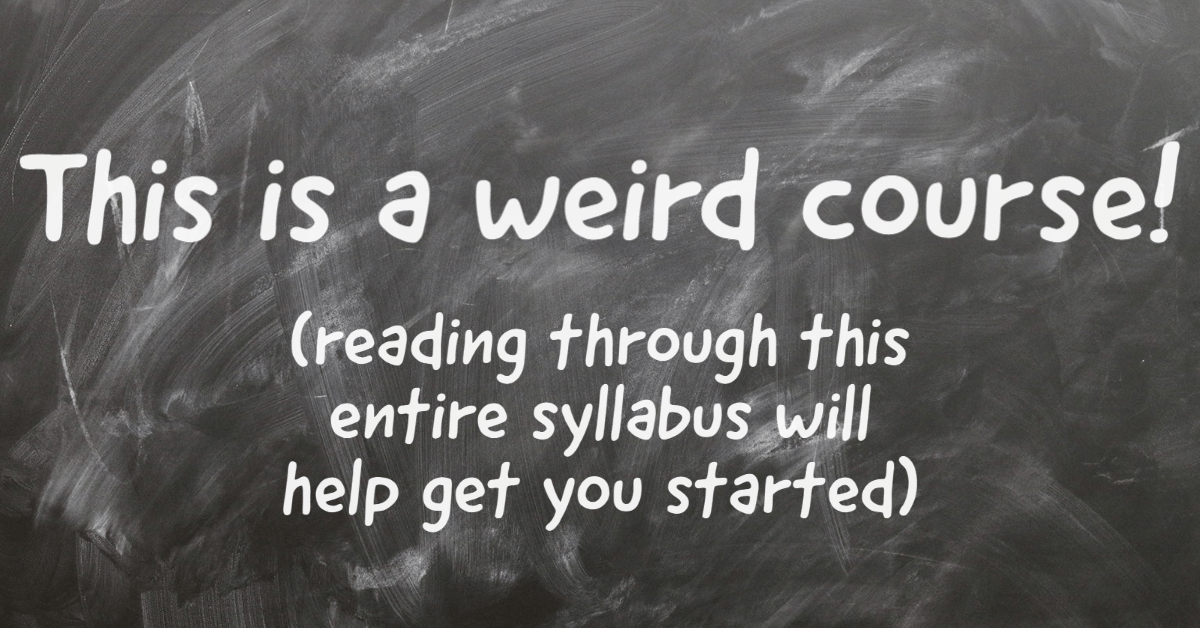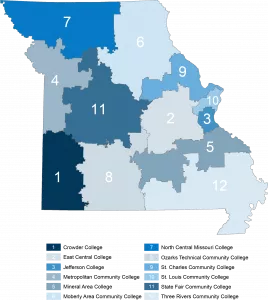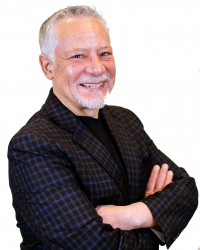Pre-A&P Foundations in Science
BIO 095 Online Course Syllabus St.Charles Community College (SCC)
This syllabus applies to the following 2023 terms
| Summer 1st 5-wk SU0 |
| Summer 2nd 5-wk SU3 |
| Summer 2-wk SU5 |
ℹ Dr. Kevin Patton is not currently scheduled to teach this course at SCC.
SCC Catalog Course Description
BIO 095 Pre-A&P Foundations in Science (1)
This course provides the foundations of scientific terminology and concepts useful for success in Anatomy & Physiology I (acceptable prerequisite for BIO 250A/250B). Topics include: scientific method, chemistry of life, cell biology, genetics, energetics, overview of human systems. This course is graded on a Pass/Fail basis. Offered online only. This course does not count toward graduation.
Contents
Land Acknowledgement
1 | Course Overview
→ Review Course
→ Self-Paced
→ Entirely Online
2 | Course Director
3 | Course Materials
→ Do I need a textbook?
4 | Objectives & Learning Outcomes
→ Course & Module Goals
→ Institutional Goals
5 | How the Course Works
→ Overview
→ Success Pathway
→ Retrieval Practice
→ Grading
→ Badges
→ Faculty Role
6 | Course Web Skills & Websites
→ Web Skills
→ Lion Den
→ Canvas
→ SCC Website
7 | Tests
→ Objective Formative Tests
→ Open-Resource Tests
→ Immediate Scoring & Feedback
→ Unique Test Attempts
→ Timing & Availability
→ Progress & Success
→ Critical Thinking
→ Desirable Difficulty
→ Accessibility
8 | Getting Help
→ Getting Instructor Help
→ ACE Tutoring Center Help
→ Withdrawal
→ Specialized Help
→ SCC Support & Policies
9 | Attendance & Student Behavior
→ Attendance ⚠️
→ Academic Integrity & Etiquette
→ Student Understanding
(click section title or scroll down to find these sections)
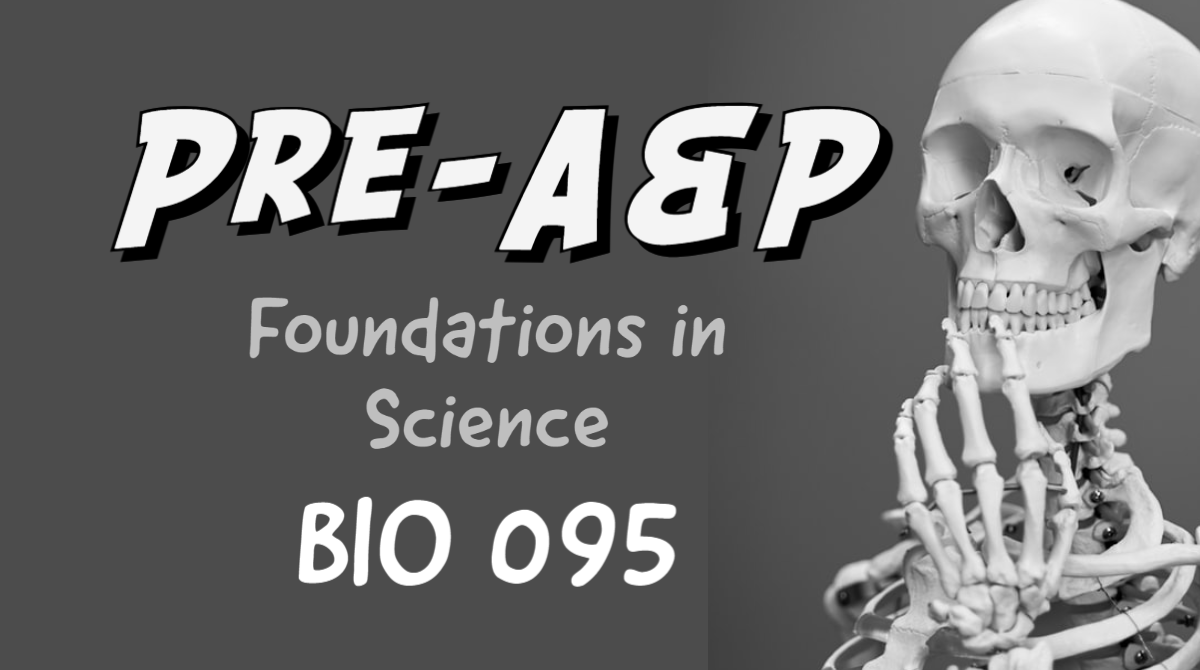
IMPORTANT notes: The syllabus page and attached pages posted on the web make up the OFFICIAL syllabus document for this course. Check it often for changes or updates. lionden.com/fis.htm Notices regarding tests, schedule changes, and other important information are posted on Canvas. Your main learning guide is the set of Review Outlines found at lionden.com/fis_review.htm
Changes do occur occasionally, so it’s important for you to be up to date.
Land Acknowledgement
Our course originates from St. Charles Community College within the traditional lands of the indigenous Niutachi, Sioux, Quapaw, Osage, Kaskaskia, and Kickapoo peoples and transferred by treaty or conquest to a succession of colonial owners and governments, eventually becoming part of our college district. I honor with gratitude the land itself and those who have stewarded it through many generations. Join me in committing to be worthy stewards of this land by honoring those who came here before us.
1 | Overview
This is a Review Course
This course is intended as a quick “refresher” course to prepare you for successful entry in to an anatomy and physiology course (BIO 240). Although there is no credit toward a degree given for this course, successful completion of BIO 095 is a sufficient prerequisite for entry into BIO 250 at SCC.
BIO 095 is for students who have already learned all or most of this material in their prior learning. To clarify, you should have achieved most of the Objectives & Learning Outcomes listed below in the past, but probably forgot some of that and need some refreshing and reinforcement. You’ll also fill in any gaps in your prior learning. This course therefore QUICKLY reviews the concepts that you’ll need to “bring with you” into A&P and get a good start in that course.
This is a Self-Paced Course
The course is a “self-directed” distance learning course which means that you are “on your own” to review the material and take your tests and exam at your own pace. Okay, you’re not entirely on your own. Beside instructor-provide review resources, your instructor will communicate with you regularly by course Announcement to help keep you on track and to offer advice—and is “on call” throughout the week to help you out of a jam or to provide coaching as needed to progress in the course.
This Course is Entirely Online
Please review all the material below before beginning the course to learn the details of how BIO 095 works. The technology needs are simple: you need a Canvas-compatible computer or other device with a Canvas-compatible browser connected to the internet.
Before going any further, please go to Distance Education Readiness to make sure you are prepared for the format of this course! If you are not ready, please consider enrolling in a different course, such as Human Biology.
Please participate in the Online Orientation for this course for an overview of what to expect.
Note: BIO 095 is a PASS/FAIL course that is not for academic credit for a degree. It does, however, satisfy SCC’s prerequisite requirement for entry to A&P courses.
2 | Course Director
Kevin Patton, Ph.D.
Video Introduction: Introduction to Your Course Director
Department Office: ADM 2442 (I work from an off-campus office, not the department office.)
Phone: 1·636·486·4185 | Toll-free: 1·833·LION·DEN (both accept text messages)
Email: kpatton@stchas.edu
When using regular email, please use your SCC student email (not your personal or work email account). | Please include a subject line identifying you as a “BIO 095 student” —so my spam filter won’t think it’s junk mail
You may address me as “Kevin” or “Dr. Patton” or “Professor Patton” | My pronouns are he, him
Canvas messages, emails, or phone calls to the instructor are usually answered quickly, but may take up to two days for a response. If the matter is urgent, or you do not get a timely response, don’t hesitate to follow up on your communication.
Office Hours: I work from an off-campus office and you can schedule a private web meeting at any of the available times in by scheduler at lionden.com/StudentConsult. (Acuity Scheduling Privacy | Accessibility)
For more detailed contact information: lionden.com/student.htm
3 | Course Materials
Do I need a textbook?
You may not need a book at all! This course is a review of your prior learning in biology. But if you want a book to help you, if you have a general Biology textbook or A&P textbook, you will find content that will help you.
I have an A&P textbook on reserve at the SCC Library for use in our course. Just ask at the Circulation Desk for the “Pre-A&P” book on reserve ( “Anthony’s Textbook of Anatomy& Physiology” or “Anatomy & Physiology” in the Science section). Or you can find other useful textbooks in the library catalog.
Other resources to try (optional):
- OpenStax College Biology | Free open-source textbook (OpenStax Privacy Policy , OpenStax Accessibility Statement)
- OpenStax Anatomy and Physiology | Free open-source textbook (OpenStax Privacy Policy, OpenStax Accessibility Statement)
- Kahn Academy Biology | Free video learning modules (Khan Academy Privacy Policy, Kahn Academy Accessibility information)
- Wendy Riggs Videos | Free (YouTube) video mini-lectures on topics in General Biology and Anatomy & Physiology (YouTube-Google Privacy Policy, YouTube-Google Accessibility Statement)
4 | Objectives and Learning Outcomes
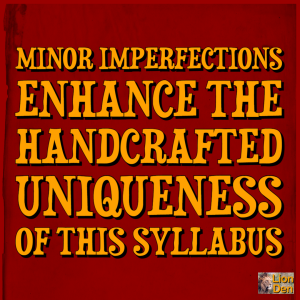
Course & Module goals
Course-level goals are numbered by course module, except 11, which is addressed throughout this course. Lettered items are module-level goals that are also reviewed and reinforced in subsequent modules and the final exam.
When you are finished with this course, you should be able to…
- describe scientific methodology used in human sciences
- demonstrate competent use of scientific terminology
- demonstrate a working knowledge of metric (SI) units of measurement
- describe the scientific method, including development of theories
- interpret scientific graphs, tables, diagrams, and charts
- define life from a biological perspective
- describe the main levels of biological organization
- apply basic concepts of chemistry to human sciences
- describe the essential structural components of matter
- distinguish the main types of attractions among atoms
- describe the chemical properties of water in the body
- define pH; use the pH scale; define acid, base, neutral, and buffer in terms of pH
- demonstrate familiarity with biologically important macromolecules
- describe polymerization and define monomer
- list categories and examples of carbohydrates, lipids, proteins, nucleic acids (and related molecules)
- give examples of hybrid molecules
- list important functions of each major type of macromolecule in the human body
- describe the basic structure and function of human cells
- describe the generalized human cell, including cytoplasm, nucleus, membranes, and organelles
- list important organelles found in human cells, describing the basic structure and function of each
- list and describe major types of cell junctions
- describe the extracellular matrix and list its main functions
- describe the life cycle of the cell, including major phases of interphase, mitosis, and cytokinesis
- describe how substances are transported across cell membranes
- distinguish between active and passive forms of transport
- define key terms related to solutions (e.g., solvent, solute) and diffusion (e.g., permeant, permeable)
- describe simple and facilitated diffusion
- distinguish between mechanisms of channel-mediated diffusion and carrier-mediated diffusion
- describe osmosis and osmotic pressure and their effects on human cells
- distinguish between cotransport (symport) and countertransport (antiport)
- describe mechanisms of vesicle-mediated transport
- describe how cells get energy
- describe the structure of ATP and its role in the cell energy cycle (ATP cycle)
- define metabolism and contrast catabolism with anabolism
- describe the basic structure of the cell’s metabolic pathway for transferring energy from nutrients, distinguishing between aerobic and anaerobic pathways
- describe the role of enzymes in metabolic pathways
- describe glycolysis
- describe the citric acid cycle
- define the role of the electron transport system
- describe the overall energy budget when transferring energy from glucose to ATP
- describe how cells use the genetic code to make proteins
- describe how information is encoded in the structure of DNA and RNA
- describe transcription and editing of a protein-coding gene
- outline the process of translating a gene transcript to produce a protein
- describe the significance of genetic mutations in protein synthesis
- describe the basic mechanisms for regulating gene expression
- identify the locations of DNA in a human cell and of the main steps of protein synthesis
- define and apply basic principles of human inheritance
- define genetics and genomics in terms of biological inheritance
- describe meiosis and contrast it with mitosis
- define what a gamete is and tell why it must be haploid
- identify Mendel’s role in the history of genetics
- define key terms of genetics: gene, trait, allele, homozygous, heterozygous, dominant, codominant, recessive, genotype, phenotype, carrier, mutation, deletion, duplication
- define the Law of Segregation
- define the Law of Independent Assortment
- describe hybridization, including monohybrid and dihybrid crosses
- interpret Punnett squares and pedigrees
- describe the concept of sex-linked traits
- distinguish between nuclear and mitochondrial inheritance
- describe chromosomal and point mutations and their role in inheritance
- describe how traits can be inherited by epigenetic mechanisms
- describe the structure and function of the four basic tissue types in the body
- describe the structure and function of the extracellular matrix
- describe how epithelial tissues are classified by layers and cell shape
- explain how cellular junctions (desmosomes, gap junctions, tight junctions) play a role in epithelial structure
- distinguish between the apical and basal surfaces of epithelial cells
- list major functions of epithelial tissues in the body
- describe the general structure and function of connective tissues as a group
- compare and contrast elastic fibers and collagenous fivers
- identify the major types of connective tissue and give distinguish them by structural characteristics
- list and describe the three main types of muscle in the body, distinguishing them by structure and location
- define syncytium and describe its functional importance in the heart
- describe the two main types of cells in nervous tissue
- define synapse
- describe the basic body plan of the human organism
- tell why anatomical terminology is more accurate than plain English for describing human body structure
- describe the anatomical position in human anatomy
- use correct anatomical terminology to describe direction in the body
- identify the major types of anatomical planes in the body
- describe how organs are grouped into systems for biological study
- identify the functions and major organs of each of the eleven major organ systems of the human body
- work independently in a self-paced online science course
- succeed in taking online tests and exams
- communicate in professional scientific language, including correct spelling and usage of terminology
- exhibit ethical professional behavior, including academic integrity.
Institutional Goals
In addition to course-level outcomes, SCC has five institutional learning outcomes. These can be achieved by learning activities embedded throughout this course and other SCC courses.
When you are finished with your SCC coursework, you should be able to…
- demonstrate clear and effective communication skills.
a. Utilize language or other essential symbolic systems to articulate effectively in both written and spoken formats.
b. Demonstrate ability to read or listen critically.
c. Reflect or respond appropriately within a given context. - demonstrate critical thinking skills.
a. Propose possible solutions to a problem or identify the best solution.
b. Interpret evidence, statements, or graphics to formulate a conclusion.
c. Evaluate materials and present an argument using evidence and reasoning. - demonstrate quantitative reasoning skills.
a. Explain data presented in charts and graphs.
b. Utilize formulas and functions to answer questions.
c. Interpret or transform data into useful information. - demonstrate personal responsibility.
a. Express or analyze the importance of multicultural valuing.
b. Demonstrate an understanding of personal, social, or global ethics.
c. Articulate personal positions or value systems, considering implications on themselves and others. - demonstrate discipline knowledge.
a. Identify or explain terminology appropriate to the subject area.
b. Demonstrate an understanding of key ideas or principles.
c. Demonstrate comprehension or proper application of information.
5 | How the Course Works
(it’s kinda weird, so read this closely)
Overview
In a nutshell, you work your way one-by-one through TEN online modules at your own pace, then take a comprehensive final exam that covers all ten major topics:
- Science Basics
- Introductory Chemistry
- Biological Chemistry
- Introduction to Cells
- Cell Transport
- Getting Energy
- Making Proteins
- Introductory Genetics
- Tissues
- The Human Body
Success Pathway
Each module consists of an online test. There is more information about the tests in the later section Tests. A passing test grade is 85% or better.
I suggest that you take the test right away and maybe you’ll pass it. Even if you don’t feel confident, go ahead and try it. You may surprise yourself. At the very least, it’ll help you figure out where you need to brush up. You can take each test an unlimited number of times until you pass.
If you don’t pass it the first time, which is the most common experience, then you may want to review the Review Outline provided in the module. Each review outline summarizes some of the main points and helps you find what you need in a textbook to get ready for the test. After looking at the Review Outline, you may want to listen to the audio summary, which is simply a summary of selected highlights from the related Review Outline.
When you pass the test in the first module, the test in the second module is “unlocked” and you can now take that test. You cannot skip ahead . . . you must pass each module test to get to the next one. When you pass the last module test, the final exam will be “unlocked” and you are ready to finish the course!
If you fail to reach the final exam and pass it, then you have failed the course and must re-enroll. You can go at our own pace, of course. The final exam cannot be taken earlier than the midpoint of the semester or session in which you are enrolled. So the soonest you can finish the course is the “half-way” point on the academic calendar. You ordinarily have until the last day of the course to finish the final exam and thereby finish the course (check the Assignment page in our Canvas course for the exact date and time).
Retrieval Practice
Because this is a review course that refreshes and confirms competencies needed prior to entering the A&P course, success in the tests and final exam is the goal. There are no homework or reading assignments per se, only suggestions for reading, listening, and review if and when you need it. It’s a learning process called spaced retrieval practice and, even though it’s a bit weird, it works way better for long-term learning than the classic approach you may be used to. And it’s ideal for a self-paced “refresher” course like this.
Grading
This is a pass/fail course. The passing course grade is 85% or better on all module tests and the final exam. That is, you must pass each and every module test and the final exam to pass the course. This course is not graded by total points or by test averaging. Instead, you simply have to pass all tests and final exam in sequence to pass the course. NOTE: Canvas scores are not rounded up, so earning anything less than the 85% requirement is not enough to pass the test, exam, or course.
You can gauge your progress in the course by watching the Canvas gradebook to see how many tests you’ve passed (out of ten, plus the final exam). The more tests you pass, the closer you are to your goal of passing the course. Canvas reports an average, but that doesn’t tell you how many tests you’ve passed—so it’s not helpful to you).
If you feel stuck, are confused about something, or need any kind of help, you can contact the course director any time.
Badges
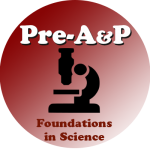
Faculty Role
Because this course is self-paced and self-directed, it is also a student-centered course. Your instructor provides an evidence-based, carefully constructed Success Pathway of review resources and formative (learn-by-retrieval-practice) tests and exam. The instructor also provides study tips and coaching advice through various course links, regular course announcements with advice to help you keep on pace for success, and is available for individual help as needed throughout the week. There are no class meetings or lecture sessions.
You will always find the instructor in one of three places:
- Out in front of you, cheering you on.
- Just behind you, to have your back.
- Alongside you, so you know you’re not going it alone.
6 | Web Skills & Websites
Web Skills
You need these basic skills to succeed in this course:
- Use your internet browser to use website navigation tools (menus), click links/buttons to open new pages, progress through web resources, and submit tests, posts, or other forms.
- Use your SCC student email or Canvas to communicate with the instructor or other students.
- Know where to get help and support for computer questions and concerns.
Lion Den

Most course resources that do not require password security are located here. Any pages you might want to use in the Lion Den are accessible from within the course platform on Canvas. Here’s a brief video orientation for finding course resources in the Lion Den youtu.be/jvjH3mWrEw8
Canvas
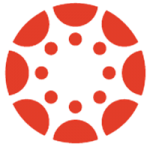
Canvas by Instructure is the learning management system (LMS) used by most SCC courses. All items that do require password security are located here. Any pages you might want to use in the Lion Den are accessible from within the course platform on Canvas. Here’s a brief video orientation for finding course resources in the Canvas course youtu.be/uL2kh-MEC0A
Notes
Review Outlines and other required information is also located on the Lion Den course website. Online Tests and the Grade Book are available on Canvas. Therefore, all students must have access to the internet and an internet browser. Your friendly and helpful IT Service Desk will help you with this.
To login to your Canvas course go to the SCC Portal – mySCC and click on the Canvas link, or go directly to stchas.instructure.com and you will be prompted to enter your mySCC user name and password. Find and click on the course title in the menu options after login. If you have any problems with logging on or accessing Canvas, contact the IT Service Desk . You have to click into the course in Canvas after registering for the course to appear in the Canvas roster. Once you have access to Canvas, use the Help link at the bottom of the global toolbar for support options. (stchas.edu Privacy Page)
SCC Website


7 | Tests
Objective Formative Tests
Objective online tests will be given on Canvas ten times during the semester. In addition, their is a comprehensive online final exam that is also completely online. Online tests are done on Canvas, which is set up for immediate scoring of submitted online tests/exam.
Because the goal of this course is proficiency of important core concepts, you may take each online test or exam as many times as you need to in order to pass it. Such “formative testing” is a learning/review process that helps you practice and reinforce essential concepts.
Open-Resource Tests
When taking an online test or final exam you may use your notes, textbook, online resources, discussions with others, and previous attempts, but your answers must be your own and entered into the program only by you (you may receive direct help using the computer or Canvas platform, or in receiving verbal descriptions of test items, if you need it). Each online test presents questions one at a time, just as with professional licensing exams and college-level testing services. That is, you must answer each item and save the answer before moving to the next item.
Immediate Scoring & Feedback
When the test is finished and you have “submitted” the test or exam for grading, you will know your score immediately and you can go back and look at the entire test. Items are marked as to whether they are correct or incorrect, but correct answers are not given (you must find those yourself as part of the formative learning process). Your personal learning goal for each test should be close to 100%. You must earn a score of 85% or better to pass and be able to move on to the next module. When you pass each test, you are automatically awarded a badge to show your proficiency in that topic.
Unique Attempts

Timing & Availability
The online tests and final exam are all untimed. If you exit any attempt before submitting it, it will remain unscored and you can re-enter it and finish it at any time during the course. Be sure to “Submit” a test when you finish, so that it will be scored and recorded.
Online tests and the final exam are available only during the scheduled semester/session dates. Any attempts to take an online test after the designated time will be unsuccessful. Therefore, do not wait until the last minute to take your tests and final exam! If you don’t finish by the last day of the semester/session, then you will fail the course and you’ll have to re-enroll and start over.
Progress & Success

It is your responsibility to keep track of your progress in the course. Grades will be posted in the gradebook in Canvas. Grades cannot be given out over the phone or by email in most circumstances. The official course grades are posted by the Registrar at SCC Portal – mySCC (www.stchas.edu/academics/student-resources/scc_connection). Please check SCC Portal – mySCC and investigate any possible errors or discrepancies immediately.
Critical Thinking
Our science faculty strives to facilitate each learner’s development of critical thinking skills in the context of each science course. Critical thinking skills include “higher order” types of thinking and reasoning abilities such as synthesis, evaluation, problem-solving, application, and so on. That is, using both new and old knowledge beyond simple memorization of facts. In this course, expect this kind of thinking to be evaluated in the form of test items that ask you to apply these skills.
Desirable Difficulty
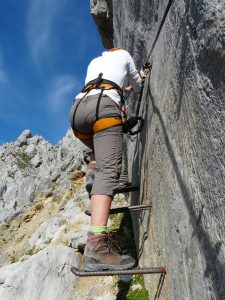
Effortful learning is very effective—producing what learning experts call desirable difficulty—but it can sometimes be frustrating. For example, if it’s been a while since you played regularly, it will be frustrating to miss the basketball hoop dozens of times before sinking a basket. As in sports, refreshing your science concepts cannot skip that effortful practice stage to reinforce long-term knowledge and skills. Expect to take each test multiple times before you pass. And expect a moment of “fruitful frustration” from time to time when a test takes more tries than you expected. Don’t be alarmed—it’s natural.
However, frustration that continues to grow can be a barrier to learning. Therefore, if you get stuck and need help, if you want some additional tips beyond what you find at Tests & Exam or Online Tests or Study Tips, or you simply need a bit of encouragement, then please contact me. That’s what I’m here for!
Accessibility
Tests are designed to be barrier-free for all students. Need for extended test times, having an acquaintance read or describe a test or review item, self-service enlargement or printing of test and review items, and other accommodations are already built into the test design. However, if you require any additional assistance or accommodation because of a documented need, please do not hesitate to contact me. I want you to succeed!
Please read through the notes at the Tests & Exam page.
8 | Getting Help
Getting Instructor Help
If you need extra help with the concepts of this course or how to solve test items, then please get my help right away. The best way to get such help is through Canvas email at kpatton@stchas.edu. You are also invited to chat with me in virtual office hours, which are by appointment in my online scheduler. I also have some study tips available online.
If you have any problems with this course or with me as your instructor, SCC policy dictates that you must seek help from your instructor/course director first. If the problem is still not resolved, then you can bring your problem to the appropriate Dean (Dr. Mara Vorachek-Warren) or academic VP (Dr. Holly Martin) for final disposition.
Getting Ace Tutoring Center Help
The ACE Tutoring Center, located on the 1st floor of the LRC/Library, offers FREE tutoring! You may receive supplemental assistance in reviewing or clarifying concepts covered in class. Please bring your SCC ID, class notes and questions. Students can schedule up to four, 30-minute sessions per week, per subject.
You can schedule your tutoring sessions with our ACE Center Staff in one of the following ways:
- Call 636-922-8444 and speak directly to our Office Assistant to schedule a tutoring session. Messages will be returned as soon as possible.
- Stop by the Library and see us in person to schedule a tutoring session (we have snacks!).
- Click the link to schedule an in person or virtual tutoring session: ACE Tutoring Center Online Appointment Scheduling.
If you have additional tutoring needs, be sure to check out NetTutor, a fully online tutoring service. You will find a tab with a direct link to NetTutor in your Canvas navigation menu.
For more information about the ACE Tutoring Center, visit our webpage: https://www.stchas.edu/student-life/student-services/tutoring-services/
Withdrawal
If you decide to voluntarily drop the course, you must officially withdraw at the registration office by the posted drop date to receive a “W” grade. If you never participate or just stop participating without officially withdrawing, you will receive the “F” grade.
| Term/Semester | Last day to changecredit/audit | Last day to drop& receive W |
|---|---|---|
| 2023/SU0 | 1st 5-wks | 20 June | 3 July |
| 2023/SU3 | 2nd 5-wks | 23 July | 3 August |
| 2023/SU5 | Pre-Fall 2-wk | 27 July | 8 August |
Dates shown are the best available at the last syllabus update. Check stchas.edu to verify correct dates.
SCC permits administrative withdrawal (“AW” grade) of a student from a course by the faculty or administration for non-participation in a course. Students may appeal an administrative withdrawal to the academic dean of the Division of Business, Science, Education, Math, and Computer Science. This applies only to courses that are more than one week in length.
Although a student may be withdrawn involuntarily if not participating, students should not assume they will be withdrawn—it remains their responsibility to withdraw from any class they do not plan to attend. Please refer to the current official policy on voluntary and administrative withdrawals posted online at the SCC website. You are also welcome to ask for clarification from your instructor or from the staff at SCC Enrollment Services.
Specialized Help

META is a mobile app that delivers easy access to private and confidential counseling services – when and how you want. St. Charles Community College will sponsor three therapy sessions for all students.
Sanvella assists students with stress, anxiety, and depression by taking them through guided meditations, personal journaling, engagement through the social chat feature, and by tracking the student’s mood and assessment.
Please be sure to indicate that you are a current SCC student by using your SCC email for either app. For additional information, please contact the Office of Student Life at studentlife@stchas.edu.
Regarding any concerning behavior you may encounter, any faculty, staff, or student may submit a report to the Behavioral Intervention Team at https://publicdocs.maxient.com/incidentreport.php?StCharlesCC or by calling 636-922-8111. Any serious concerns of immediate response please direct to the SCC Department of Public Safety at 922-8545.
St. Charles Community College makes every effort to accommodate students with disabilities. If a student had a need for special accommodations, please contact the Office of Accessibility 636-922-8247. Requests for accommodations must first be processed through this office.
As a faculty member, I am deeply invested in the well-being of each student I teach. I am here to assist you with your work in this course. If you come to me with other non-course-related concerns, I will do my best to help.
It is important for you to know that all faculty members are mandated reporters of any incidents of sexual misconduct. That means that I cannot keep information about sexual misconduct, stalking, relationship violence, or sexual harassment confidential if you share that information with me. SCC’s Title IX coordinators can advise you confidentially. They can also help you access other resources on campus and in the local community. SCC’s Prohibition of Discrimination, Harassment, Sexual Harassment and Violence Board Policy is available on-line at www.stchas.edu/titleix This includes policies, definitions, procedures and resources.
For information and details on these and other student related issues, please see the SCC Student Handbook.
If English is not your first language, click here for helpful tips.
SCC Support & Policies
Please refer to the SCC Support & Policies page for a comprehensive list of services, policies, and helpful resources.
9 | Attendance & Student Behavior
Attendance
For reporting purposes, attendance in this course is determined by your submission of online tests, which are automatically stamped with the time and date of submission. I will not officially verify your attendance in this course unless you are actually submitting online test attempts. The Student Understanding quiz does not qualify as a test for attendance recording.
⚠️ Please be aware that we are usually given only a very brief reporting window some time during first week or two of the term. If there is a substantial gap in your participation prior to/during that window, then you will be reported as “not attending.” If you have not submitted a test by then, you may risk being administratively withdrawn or your financial aid or scholarship endangered. I strongly suggest submitting at least one attempt of Test 1 very early in the course, to avoid such hassles.
Academic Integrity & Etiquette
Integrity

SCC academic integrity policy outlined in the SCC Student Handbook stipulates a variety of possible outcomes of violation of principles of basic academic integrity. In this course, receiving or giving inappropriate help in online tests will ordinarily result in receiving “F” for the course and possible additional consequences. Inappropriate help may include having someone do all or or part of the work for you or copying someone else’s work and submitting it as your own. Doing coursework for another student is another example of misconduct. Misrepresentations in communications with faculty or staff may also be considered as a violation of academic integrity.
Students who witness or have reason to suspect violations of academic integrity in this course and do not report it promptly, thus further enabling the dishonestly, will themselves also be subject to disciplinary action.
Academic integrity matters may be reported using the form at https://publicdocs.maxient.com/incidentreport.php?StCharlesCC I strongly suggest that you read the brief article Why be honest?
Etiquette
All communication should be conducted using basic professional etiquette by being polite and supportive. Check this page for specific tips and expectations: Course Etiquette or view the Netiquette resource in this module in our Canvas course: SCC Institutional Resources.
Student Understanding
You are required to complete the Student Understanding, which outlines your responsibilities as a learner, on Canvas (under “Getting Started”) as soon as possible. You will not be allowed to take the Canvas online tests until you complete the Student Understanding by checking “I understand” for each of the items. Click here for a list of the items in the Student Understanding.
Please PACE YOURSELF so that you finish the course on time.
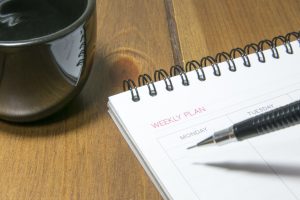
Extensions or “incompletes” are not ordinarily given in this course, so if you don’t finish by the deadline you must re-enroll in a new session of this course.
COVID-19
The college continues to follow guidance from the CDC and the local health department. SCC monitors guidance for any changes necessitated by current conditions.
Because this course is entirely online, most safety protocols will not affect how our course operates.
You may email the course director at this address kpatton@stchas.edu
Last updated: September 17, 2023 at 15:07 pm
